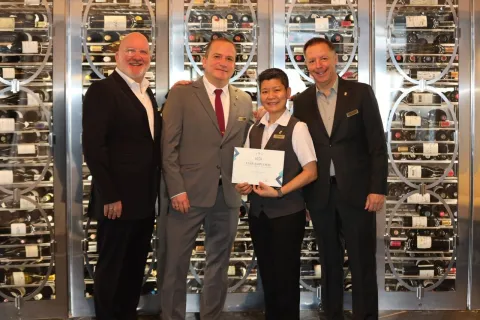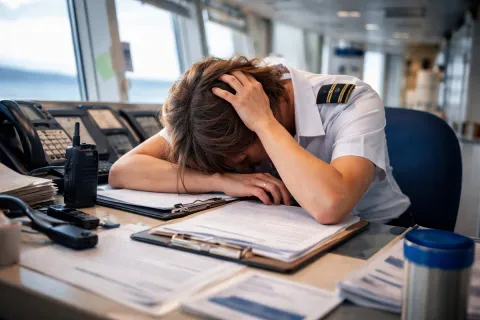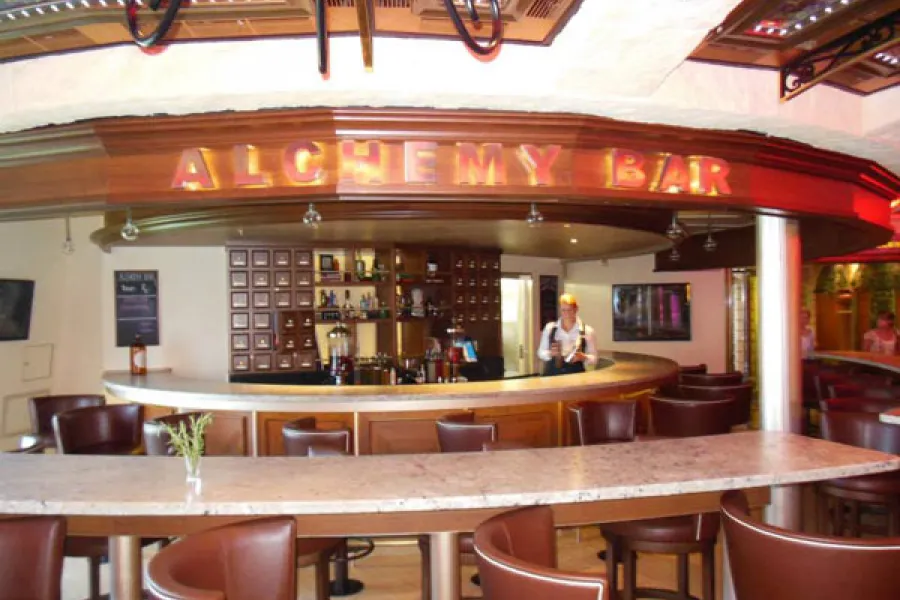
A drinks package sounds like a good idea if you like to spend your holiday ordering drinks without having to keep track of your bar tab or if you like to pair different wines with entrees and mains during meals.
But whether the package is worth, it depends on how much you drink. And drinking to excess to justify your expenditure is not a great way to have a wonderful holiday. It's estimated by the cruise line (based on the average price of a glass of wine) the amount you'd have to order in a day to get your money's worth.
You'd need to be having between six and 14 glasses per day to make economic (but perhaps not healthy) sense.

Having six glasses of wine throughout the day when you have several sea days might sound plausible. However, many itineraries pull up to a new port each day – making it a challenge to stay at the bar.
In general, drinks packages cannot be shared, and some lines like Carnival Australia and Royal Caribbean require all adults in the same cabin to purchase the beverage package. Guests traveling with Princess Cruises do not have this issue, as adults traveling in the same cabin do not need to buy the same package.
The fine print of drinks packages also varies across lines. Drinks packages on lines like Carnival Australia, Princess Cruises, and P&O Cruises have a limit of 15 alcoholic beverages daily. Any additional alcoholic drink order is subject to the Responsible Service of Alcohol (RSA) Policy and charged at regular menu prices.
Most packages include drinks up to a certain price, and some exclude drinks from certain venues, room service, or mini-bar items.
For example on Royal Caribbean, Starbucks is excluded from all beverage packages. For drinks exceeding the price, some lines have guests pay the difference and others have guests pay the full price of the drink.
Cruise Lines like Viking Ocean Cruises and Azamara also include beer and wine at meals in the fare. So you should skip the drinks package if this is sufficient and you do not have a particular drink preference.
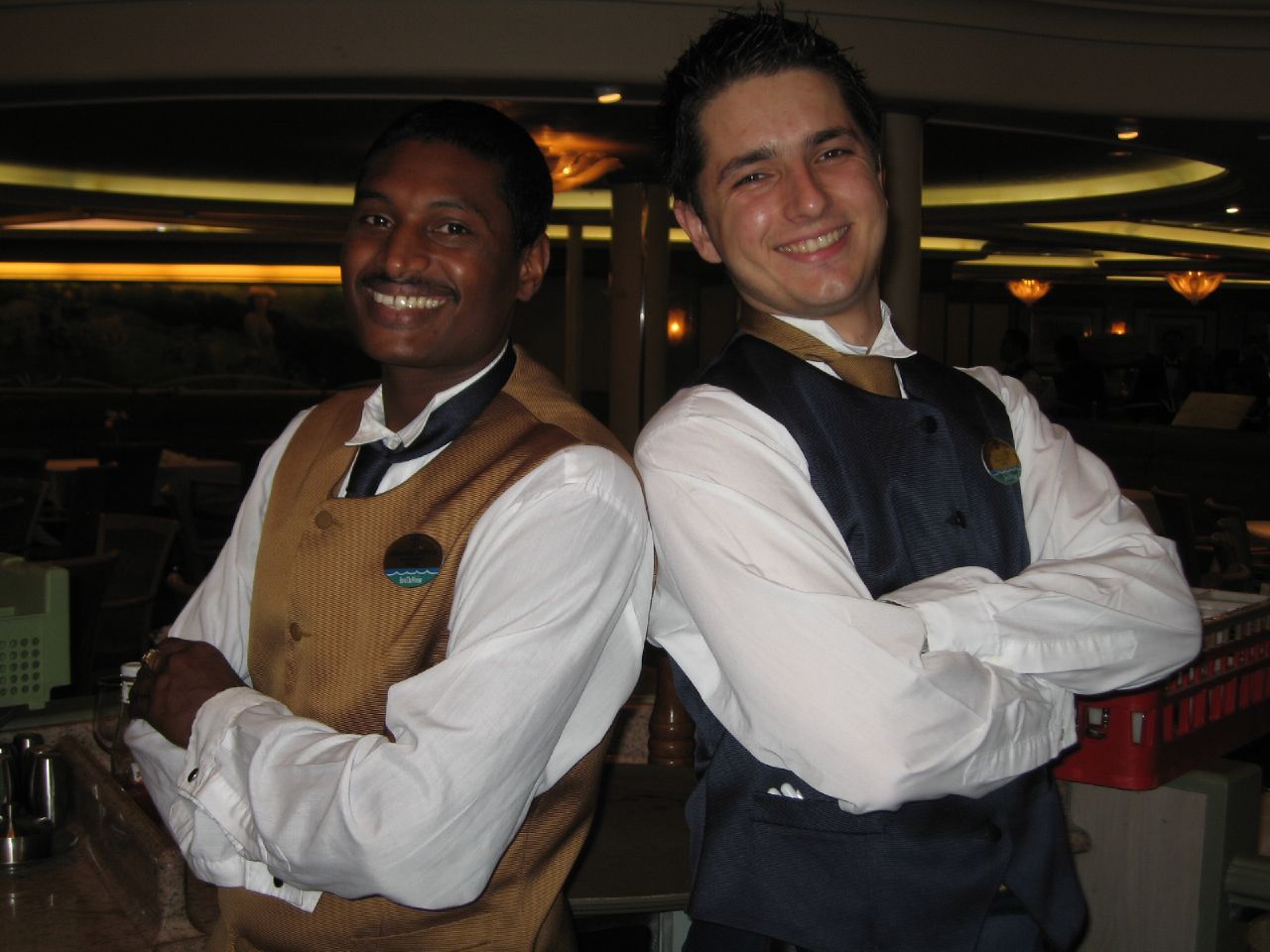
In terms of setting aside a budget for the drinks package, it is helpful to keep in mind that the package has to be bought for the entire trip. An additional gratuity also has to be added to the advertised price of the package.
Guests are not allowed to bring beer or hard liquor onboard for consumption or any other use.
Alcoholic beverages seized on embarkation day will not be returned. Security may inspect containers (water bottles, soda bottles, mouthwash, luggage, etc.) and will dispose of containers holding alcohol. I remember one customer filling up the Listerine bottle with Midori Mellon liqueur. The problem was that he packed seven bottles of Listerine upon boarding the ship, and of course, the idea did not work. Guests who violate any alcohol policies (consume, provide alcohol to people under the legal drinking age, demonstrate irresponsible behavior, or attempt to conceal alcoholic items at security and or luggage check points or any other time) may be disembarked or not allowed to board, at their own expense, under Guest Conduct Policy. Guests under the permitted drinking age will not have alcohol returned to them. All guests must comply with TSA guidelines for transporting liquids.
On embarkation day, each guest of drinking age may bring one (1) sealed 750 ml bottle of wine or champagne. Boxed wine and other containers are prohibited. Guests who purchase alcohol bottles onboard, in a port-of-call, or bring more than one permitted bottle on boarding day, will have their items safely stored by the ship. These bottles will be returned on the last day onboard for enjoyment once home.
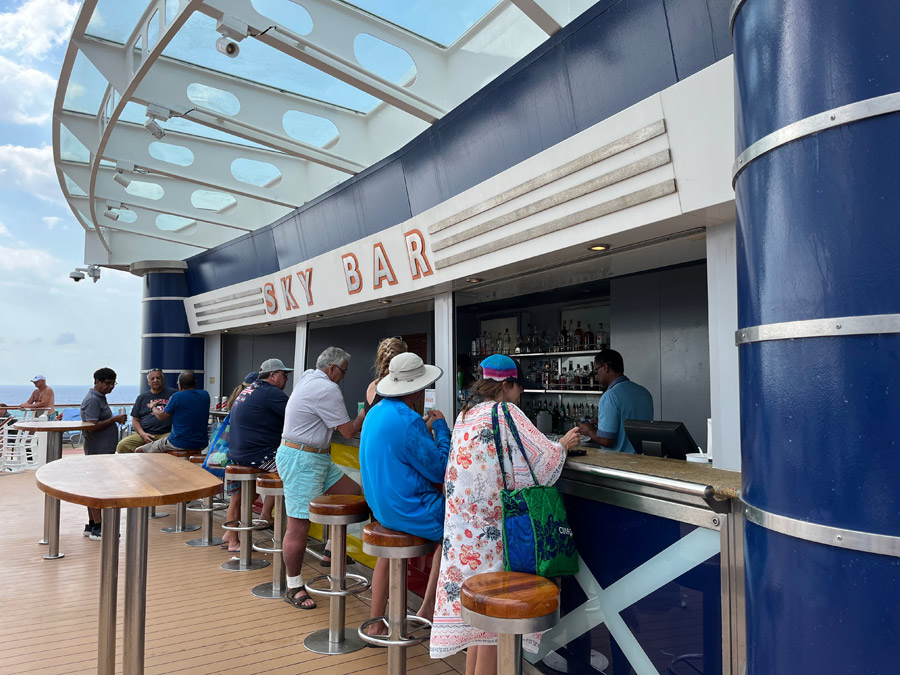
For consecutive sailings, guests of drinking age are allowed to bring one (1) 750 ml bottle of wine or champagne for each individual sailing. The ship will store additional bottles and deliver one bottle at a time to the stateroom on the first day of each new voyage. Guests bringing more than one bottle at the start of the first sailing should have documentation for any consecutive sailings available to share with security.
I once refused to serve an alcoholic beverage to one intoxicated customer in a nightclub. It was a serious law-breaking when it came to RSA service.
It happened when I was working in a nightclub. A group of friendly customers entered the nightclub just after I opened the bar. We had a nice friendly chat, and they were ordering rounds of tequila shots and chasing it with the Corona beer. I really enjoyed serving them because those people were nice, and communication was spontaneous and fun. They also gave me a good tip for every round of drinks. However, after 7 or 8 rounds of drinks, they suddenly changed their behavior and became aggressive toward other customers. That was not a good sign at all. After many years, I knew it was one of the hardest parts of a bartender's job to refuse an alcoholic beverage to a customer. It never happened that someone would respond to that like," Ok, no more for me, it's fine" when you tell people that it's enough of drinking for them, they will usually complain about it. Sometimes they brag about it for a while, but sometimes it takes longer, and guests will make a big deal. My tactics were always the same when I made that difficult decision. I would say to the intoxicated guest," For your own safety, I am afraid I can't serve any more alcoholic beverages at this time. Instead, I suggest a glass of water, juice, or a soft drink.
That tactic usually worked. Despite being intoxicated, people will still like it if you show them you care for their safety rather than just being after the bar's profit. That genuine approach usually works well; however, sometimes, it does not end well—this is one example of when things go wrong.
After I offered a glass of water to an intoxicated customer in the nightclub, the customer complained about it to guest services. Guest services did not know the importance of RSA( responsible service of alcohol), and they called me into the nightclub:" Is that I nightclub? We are here with our dear customers complaining because you refused to serve them a drink.
We just want to make sure that you understand that our customers have an unlimited drink package, correct?- the lady from the guest services replied.
"No, that's incorrect. It is my responsibility to serve the alcoholic beverage to that guest. If he falls down the stairs or feels overboard, I could be legally responsible and end up in jail. Therefore, I am eligible by the law to refuse the alcohol service and cancel someone's drinks package for the 24-hour hours," I replied firmly.
"Ok. Well, I guess I will need to wake up your manager to speak with you about it," the guest service attendant said.
I kept working; it was around 02 am. The nightclub was packed, and the group of intoxicated people came back. They were all wasted. Suddenly, my manager showed up out of nowhere. Without saying anything, he walked into the bar, poured the double tequila shot, took a Corona bottle, and gave it to that intoxicated customer who complained at the guest services desk.
"Sir, that is not correct. He is totally wasted. And you served him on my server number," I told my manager.
He just gave me an empty look and said," They paid for it. Just give it to them. He did not come in the library, but in the f.....bar!" I gave the glass of water to that customer, and he went to guest services to complain about me and that I refused to serve him a beer. The guest services called my manager, who came to the nightclub himself. The manager just walked into the bar, took the beer, and gave it to that intoxicated customer. When I asked him why did he serve that customer after I refused alcohol service due to strict RSA policy, my manager sarcastically replied to me," This is not a library; it's an f..... bar."
Following the protocols and procedures can definitely put you in trouble, and most of the time, the company does not protect its employees regarding negative comments. At the end of the day, we are just numbers for them, numbers without names.
Crew Insights
Articles and experiences shared by crew members working on cruise ship. Find out more about ship life at sea together with tips and advices for first time crew members and cruise oldtimers.




